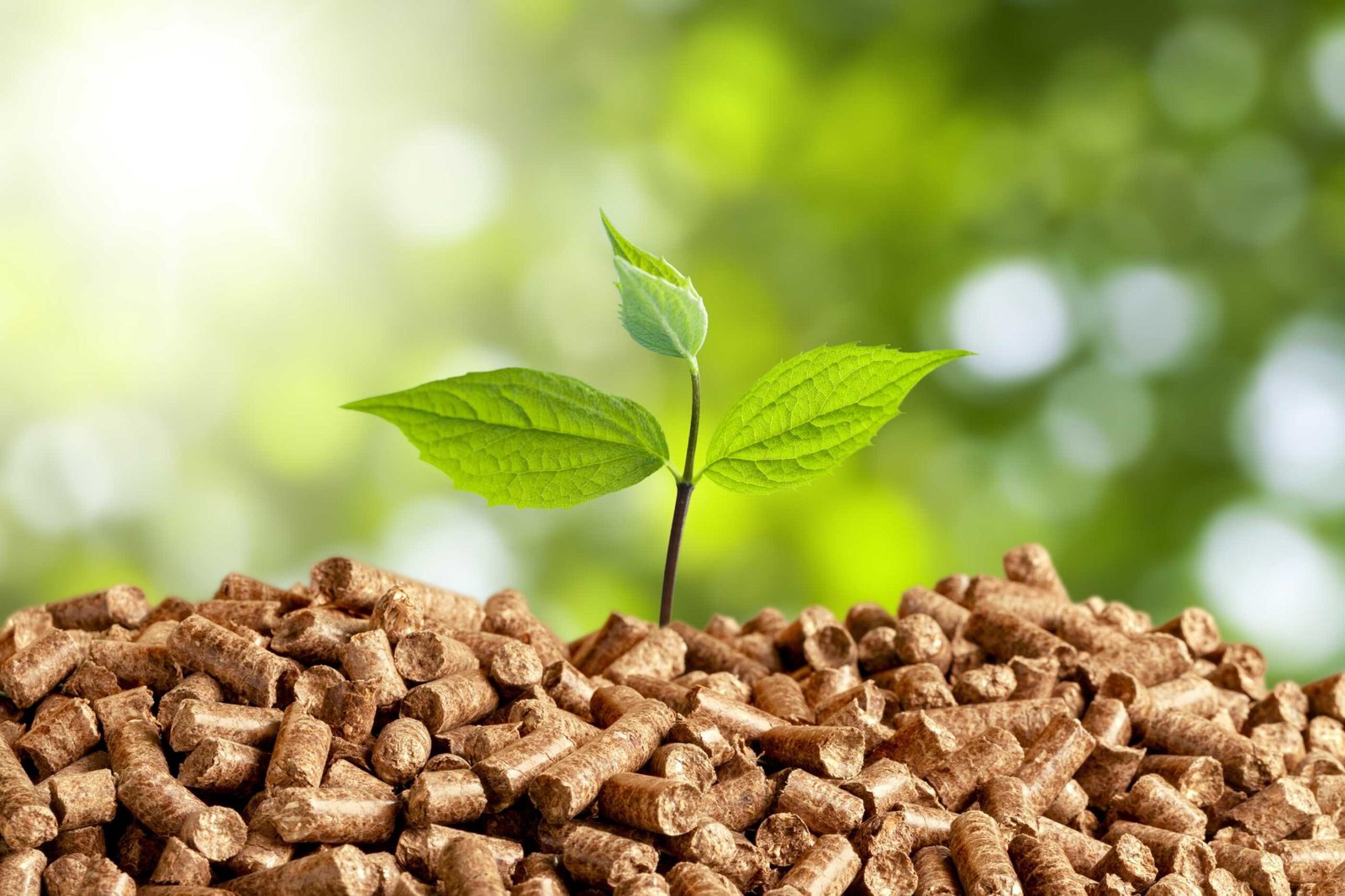Soil is the foundation of agriculture, and its health directly impacts the quality and yield of crops. Farmers and gardeners are increasingly searching for sustainable and eco-friendly ways to enrich soil without relying heavily on chemical inputs. This is where biological fertilizer comes into the picture. Unlike synthetic chemicals, these natural products improve soil fertility while supporting long-term ecological balance. When paired with modern options like liquid fertilizers, they help restore soil vitality in a way that nurtures plants, microbes, and the environment alike.
In this guide, we will explore what biological fertilizer is, how it works, its benefits for soil health, and why it is becoming a preferred choice for sustainable agriculture.
Understanding Biological Fertilizer
Biological fertilizer refers to natural formulations containing living microorganisms that enhance the nutrient availability in soil. These fertilizers do not add nutrients directly, but they improve the soil’s biological activity so that plants can access essential minerals more efficiently.
Microorganisms in these fertilizers include bacteria, fungi, algae, and actinomycetes. They colonize the plant’s rhizosphere (root zone) and promote processes such as nitrogen fixation, phosphorus solubilization, and organic matter decomposition. This natural cycle leads to healthier soil and robust plant growth.
Types of Biological Fertilizers
Biological fertilizers come in various forms, each serving different agricultural needs:
1. Nitrogen-Fixing Fertilizers
These contain bacteria like Rhizobium and Azotobacter that fix atmospheric nitrogen into a form plants can use. They are especially helpful for legumes, cereals, and vegetables.
2. Phosphate-Solubilizing Fertilizers
Certain microbes make insoluble phosphorus in soil more available for plants. This reduces the dependency on chemical phosphate fertilizers.
3. Potassium-Mobilizing Fertilizers
These fertilizers release potassium trapped in minerals, making it easier for plants to absorb.
4. Mycorrhizal Fungi
These fungi form symbiotic relationships with plant roots, increasing water and nutrient absorption while improving soil structure.
5. Algal Fertilizers
Blue-green algae like Anabaena and Nostoc enrich soil fertility and improve its water retention capacity.
The Role of Liquid Fertilizers in Soil Health
Alongside traditional biological fertilizers, liquid fertilizers are gaining popularity. These can be microbial solutions or organic nutrient-rich liquids that are easy to apply. Liquid forms are absorbed faster, promote quick microbial activity, and are ideal for both large-scale farms and home gardens.
They complement solid biological fertilizers by providing immediate nutrients while enhancing long-term soil health.
How Biological Fertilizer Improves Soil Health Naturally
Soil health is not just about nutrients—it includes biological activity, physical structure, and water-holding capacity. Here’s how biological fertilizers contribute:
1. Enhances Soil Microbial Activity
Microbes introduced through biological fertilizers multiply in the soil and boost its natural fertility. They outcompete harmful pathogens and create a healthier environment for plant roots.
2. Increases Nutrient Availability
Instead of adding artificial nutrients, these fertilizers unlock existing soil minerals like nitrogen, phosphorus, and potassium. This reduces the need for synthetic inputs.
3. Improves Soil Structure
Mycorrhizal fungi and organic matter bind soil particles together, preventing erosion and improving aeration. This allows roots to penetrate deeper and absorb more nutrients.
4. Restores Soil Organic Matter
Decomposition of plant residues is accelerated, enriching soil with humus and increasing its water retention capacity.
5. Reduces Soil Degradation
Overuse of chemicals leads to soil acidification and compaction. Biological fertilizers counteract this by maintaining a balanced pH and natural porosity.
Advantages of Using Biological Fertilizers
Farmers and gardeners benefit in multiple ways when adopting biological fertilizers:
- Eco-friendly and sustainable: Reduces chemical dependence and lowers environmental pollution.
- Cost-effective: Requires less investment compared to chemical fertilizers in the long run.
- Improved crop yield and quality: Crops grow healthier, with higher nutritional value.
- Long-term soil fertility: Unlike chemicals, they do not degrade soil over time.
- Safe for humans and animals: No harmful residues in food or water sources.
Comparing Biological Fertilizers with Chemical Fertilizers
| Feature | Biological Fertilizer | Chemical Fertilizer |
| Source | Natural, living organisms | Synthetic chemicals |
| Effect Duration | Long-term, sustainable | Short-term, fast acting |
| Soil Impact | Improves soil health | Can degrade soil over time |
| Cost | Lower over time | Higher recurring cost |
| Environmental Impact | Eco-friendly | May cause pollution |
This comparison shows why many agricultural experts are encouraging a gradual shift towards bio-based solutions.
Applications of Biological Fertilizers
Biological fertilizers can be applied in different ways depending on crop type and soil condition:
1. Seed Treatment
Seeds are coated with microbial inoculants before sowing, ensuring strong root colonization from the start.
2. Soil Application
They can be mixed with compost or directly applied to soil during field preparation.
3. Foliar Spray
Liquid fertilizers can be sprayed on leaves, providing quick absorption and boosting plant metabolism.
4. Irrigation Integration
In modern farming, biofertilizers are added to drip irrigation systems for even distribution.
Challenges in Adopting Biological Fertilizers
While they offer great potential, there are some challenges:
- Storage and shelf life: Microbes require specific storage conditions.
- Awareness: Many farmers still rely heavily on chemical fertilizers.
- Initial results: Biofertilizers work gradually, and farmers used to quick results from chemicals may be hesitant.
Overcoming these challenges requires awareness programs, government support, and more research into effective microbial strains.
Wrapping Up
Biological fertilizer is more than just a farming tool—it’s a natural ally in the effort to restore soil fertility and promote sustainable agriculture. By enriching soil with beneficial microbes, reducing dependency on chemicals, and enhancing crop productivity, it sets the stage for healthier food systems.
When paired with innovative options like liquid fertilizers, biological solutions create a balanced approach that supports both immediate crop needs and long-term soil sustainability. Farmers, gardeners, and agricultural planners alike can benefit by integrating these eco-friendly practices into their cultivation methods.
Related Reads
- Custom Fitness App Development: Build the Fitness App Your Users Actually Want
- Android Security Features by Google: Stronger Scam Protection
- Sofa Cushions – Add Comfort, Color, and Style to Your Living Space
- Is a Stretch Limo Service in Toronto More Affordable Than You Think?
- Driving School in Surrey – Learn to Drive with Confidence
- Sofa Cum Bed Buying Guide: Things to Know Before You Buy Online



